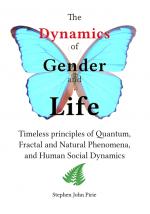Recently I had cause to reflect on the nature of competition (in this case for a Trademarked name I have).
By its nature, competition reduces everyone to winners or losers with the winners having to 'take' from the losers. It's about dividing the pie more unevenly, whereas creativity and innovation only ADDS to the mix and expands the pie.
And that got me thinking about the whole competitive focus of our sports-mad culture. It's about limited resources (with the winner taking those resources — prize money, pretty objects, partners ... whatever). The fine print is that "there is not enough" for everyone, so we must compete. Culturally this is deeply embedded, starting with the silliness of Darwinian 'survival of the fittest' theories — we need to compete to survive, so goes the theory.
But where within Darwinian theory does anyone account for that characteristic that so greatly differentiates us from animals — our creativity to imagine, theorize, rationalize, invent, create, innovate and build technologies and machines that greatly add to the pie? When we compare ourselves to the (competitive) animal kingdom we do so by ignoring our defining characteristic — our imagination and creativity. If there's a shortage — say, energy to do useful work, we use fuel (e.g. wood/coal/nuclear etc - steam engine, turbines etc) with machines and infrastructure (e.g. railways, ships) to carry us across continents and oceans and into space. We have transformed the world with our imagination, creativity and inventiveness.
Harking back to the competitive world we see in the animal kingdom has culturally habituated us into thinking "I can't create and add to the world, so I'll have to get tricky and clever and grab what I can."
Competition is a seriously limiting and depressive energy. The more we compete, the more we compare, the more we are reminded "there is not enough", so the more we'll feel depressed. We think that life is NOT naturally abundant, giving and supportive, so we must cut, kill and consume the creative output of others. Religion greatly exacerbates this sense of a competitive, unfriendly world by teaching a hierarchical higher vs lower, good vs bad reality -- we're taught there is a God over us, not (as the Pythagoreans believed) God as us, that we're all in this together (some exceptions to this competitive God-smart, humans-stupid world-view are now emerging in religion in Process Theology).
Singer/songwriter Courtney Barnett
That I feel is one of the reasons for our increasing epidemic of depression ... we're told day in and day out that life is increasingly competitive, and that if we don't out-run, out-sell, out-compete our competitors we'll be left behind. When we lose, we don't feel life is inherently supportive. Only winners are grinners, as they say. That lack of any profound sense of support causes all sorts of anxieties and selfish behaviours.
Believing in an underlying competitive dynamic infuses a deep sense that if we're not rich and successful, we — especially men — are "losers". We feel guilty for being a failure, for not measuring up, for not be competent, productive, valuable.
Those at the bottom of the heap, so to speak, can only but look up to those in authority. Those who voice a strong sense of control and authority are seen as being able to resolve their difficult circumstances — hence why many poor, "working class" folk vote for conservative politicians: the very same politicians who actively seek to diminish social services and equitable tax regimes that would be of benefit to the poor. It's a vicious circle that seems to be increasing in severity (at least in Australia).
Marriage breakups see the worst of this competitiveness ... competing over possessions (because we "work so hard" to gain them); competing over children (because there is only "limited love" in our world).
Then it struck me why lawyers are more likely to be depressed or alcoholics — in our adversarial legal world there's only winners and losers: those that win and take, and those that lose and become poorer, or less able to enjoy their children's love and company.
And that's why various 'get rich quick' schemes and activities are so popular: 'slot machines', TV game shows, casinos, ponzi-pyramid schemes, lotteries and litigation ... ("I can't create new ideas and products that will produce wealth and abundance for myself, so I'll win it or take it from others").
The list goes on.
And yet the benefits and results of creativity are all around us to observe. Every part of our culture and civilisation — all the products, buildings, bridges, recipes, services, jokes, clothes, cars, computers ... and pets — originated from someone's creative, original thought. It's all been the result of ideas that were different to what existed before, dating back to the stone age, and even before then.
Update, Sunday 25th September, 2016
In preparation for my new "Gender Dynamics" course (soon to be available via online learning platform), I've since expanded my understanding on the nature of competition. In certain contexts, it is "natural", insofar as it echoes the natural tendency for 'fermion-natured' entities (e.g. people, more typically males) to create, affirm and defend their own space, and that (like marbles in a bucket) must stack one upon the other, as is typical in hierarchical structures and organisations. They cannot share. Hence the origin and "naturalness" of competition and hierarchy. That said, it is a misnomer to consider competition as being natural, of and by itself.
